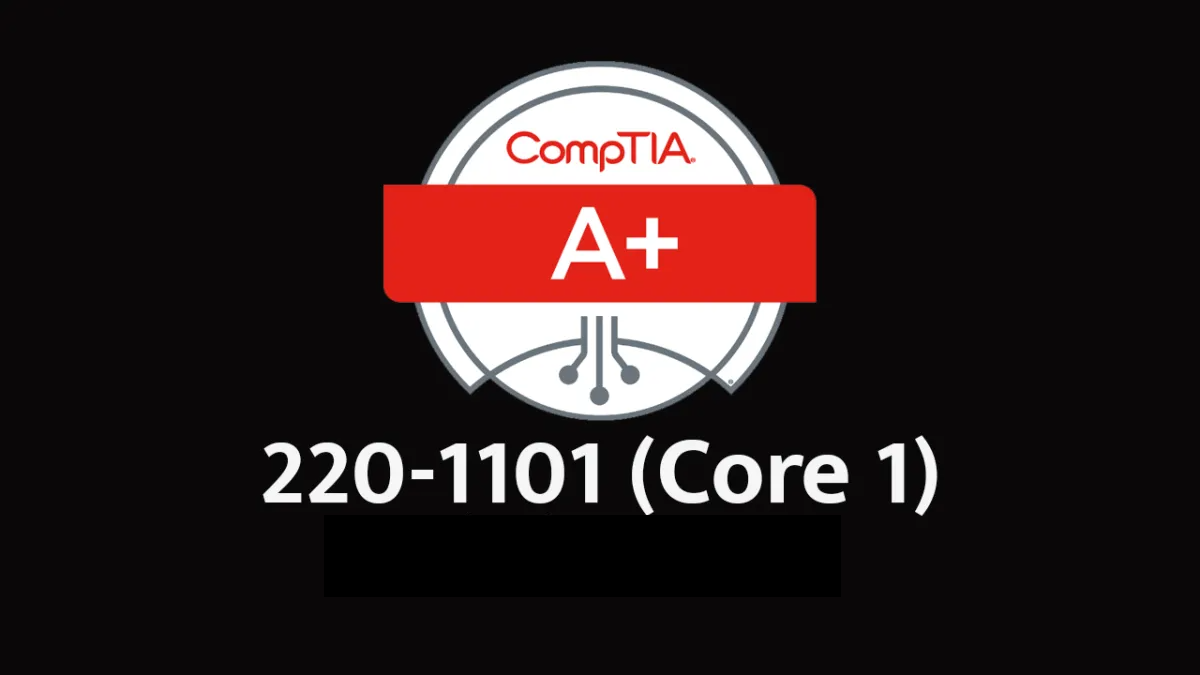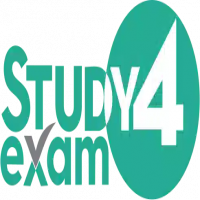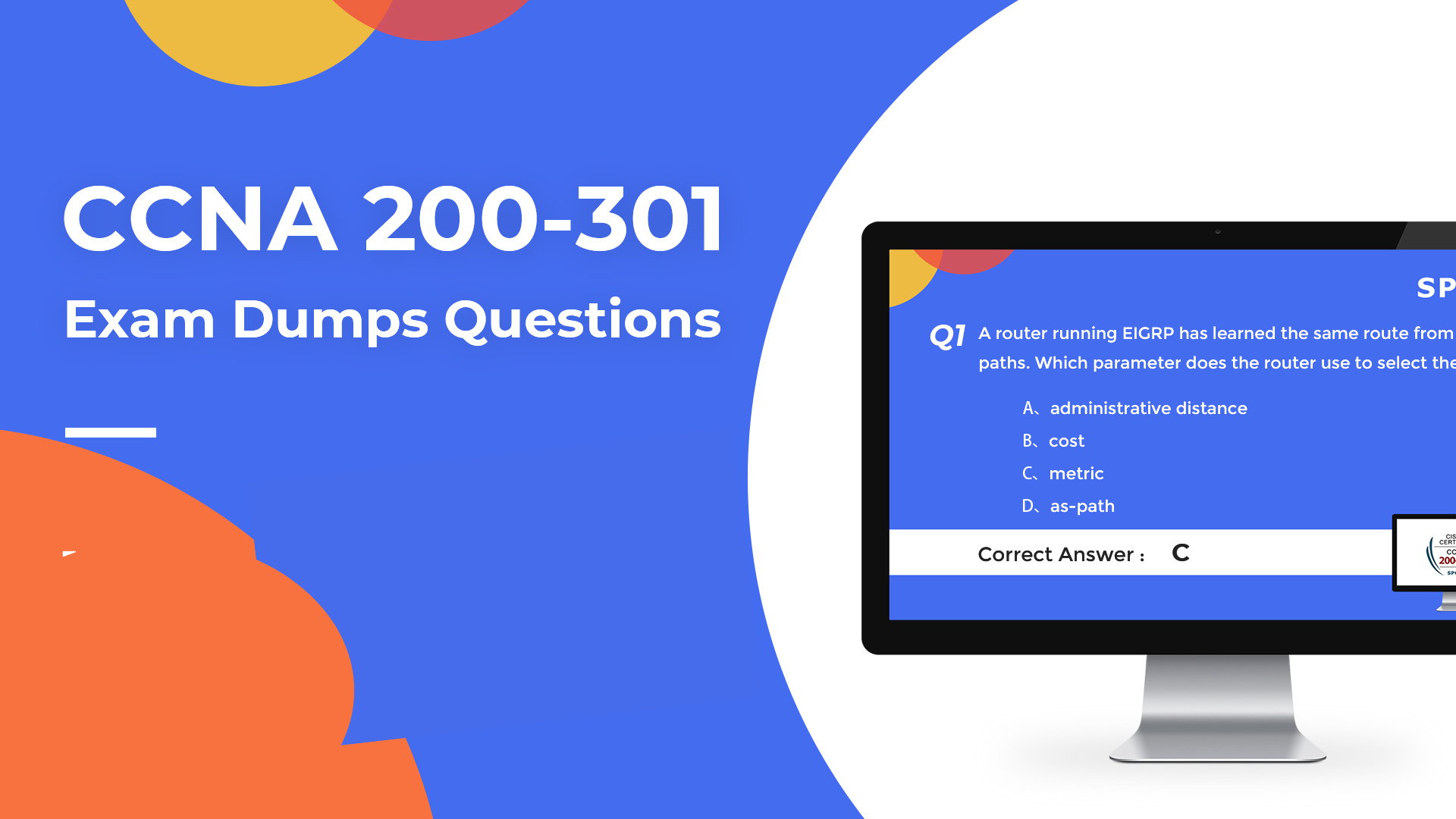Master the CompTIA A+ 220-1101 Exam with a Proven Study Plan

Strong 8k brings an ultra-HD IPTV experience to your living room and your pocket.
Breaking into the IT industry can feel overwhelming but the CompTIA A+ certification makes it far more accessible. If you’re preparing for the 220-1101 exam (Core 1), having a structured and proven study plan can make the difference between passing on your first attempt or struggling through retakes.
Whether you're a beginner, a student, or changing careers, this guide will walk you through a step-by-step approach to mastering the CompTIA A+ 220-1101 exam efficiently and confidently.
1. Understand the CompTIA A+ 220-1101 Exam Structure
Before diving into resources or practice questions, it's crucial to understand what you're signing up for.
✅ Exam Overview:
Exam Code: 220-1101 (Core 1 of 2)
Duration: 90 minutes
Questions: Maximum of 90
Types: Multiple-choice, drag-and-drop, and Performance-Based Questions (PBQs)
Passing Score: 675 out of 900
Cost: Around $246 USD (may vary by region or discount)
📚 Domains Covered:
Mobile Devices – 15%
Networking – 20%
Hardware – 25%
Virtualization and Cloud Computing – 11%
Hardware and Network Troubleshooting – 29%
2. A 4-Week Study Plan That Works
Here’s a weekly study plan that’s helped thousands of candidates stay focused and organized.
📅 Week 1: Mobile Devices + Networking
Learn about laptops, tablets, and smartphone configuration
Study wireless standards, ports, IP addressing, and protocols
Watch tutorials or take notes from Professor Messer’s free videos
📅 Week 2: Hardware
Understand motherboards, RAM, power supplies, and connectors
Set up practice labs or simulations to visualize PC builds
Learn about printer types, installation, and troubleshooting
📅 Week 3: Virtualization, Cloud, and Troubleshooting
Grasp virtualization concepts and cloud computing services
Study command-line tools and troubleshooting methodology
Start light practice with quizzes and short tests
📅 Week 4: Review and Practice Exams
Focus on weak areas identified from earlier study
Take 2–3 full-length practice exams
Practice PBQs under exam-like conditions
Tip: Stick to 1–2 hours of focused study per day. Don’t just read—engage actively with the material.
3. Use Trusted Study Resources
Consider mixing these learning tools:
Books: CompTIA A+ Certification All-in-One by Mike Meyers
Practice Tools:
Study4Exam for realistic CompTIA 220-1101 exam questions and dumps
Labs: Use simulation software like Cisco Packet Tracer or real hardware if available
Hands-on Practice:
Use old hardware (if available)
Set up a virtual lab using VirtualBox or Packet Tracer
Use a combination of reading, watching, and doing. This multi-modal approach helps reinforce learning from different angles.
Mastering Performance-Based Questions (PBQs)
Performance-Based Questions (PBQs) are a crucial part of the CompTIA 220-1101 exam and often carry more weight than standard multiple-choice questions. These interactive tasks are designed to evaluate your hands-on ability to solve real-world IT problems.
How to Prepare:
Watch PBQ walkthroughs on YouTube to understand question formats
Use simulation tools like VirtualBox, Packet Tracer, or CompTIA’s labs
Focus on practical skills such as configuring IP settings or identifying hardware ports
Practicing realistic scenarios helps you move beyond memorization and prepares you to think and act like an IT professional.
Final Review and Exam Day Tips
In the final days leading up to your exam, focus on review not cramming.
Last-Minute Checklist:
Revisit tricky topics and misunderstood questions
Take 1–2 final full-length timed practice exams
Get a full night’s sleep before the test
Arrive at your testing center early with proper ID
Exam-Day Strategy:
Flag hard questions and come back later
Stay calm and manage your time carefully
Read each question thoroughly—don’t rush
Confidence is key. By the time test day arrives, trust your preparation.
Final Tips
The CompTIA A+ 220-1101 exam is one of the most recognized entry-level certifications for launching a career in IT. It covers essential skills such as hardware, networking, mobile devices, cloud computing, and troubleshooting. While the exam can be challenging, it’s completely achievable with a well-structured study plan, reliable resources, and consistent effort.
To succeed, begin by understanding the exam objectives. Create a realistic study schedule that breaks topics down week by week. Use a combination of learning methods such as video tutorials, textbooks, hands-on labs, and practice exams—to reinforce your understanding. Resources like Professor Messer, Mike Meyers’ All-in-One Guide, and Study4Exam’s practice questions are especially useful.
Take time to master performance-based questions (PBQs), which test your real-world troubleshooting and configuration skills. These questions often carry more weight and require practical application, not just memorization.
Stay consistent with your study efforts and track your progress regularly. If you find certain topics difficult, revisit them until you feel confident. The key is dedication, focus, and being adaptable with your study approach.
Note: IndiBlogHub features both user-submitted and editorial content. We do not verify third-party contributions. Read our Disclaimer and Privacy Policyfor details.



